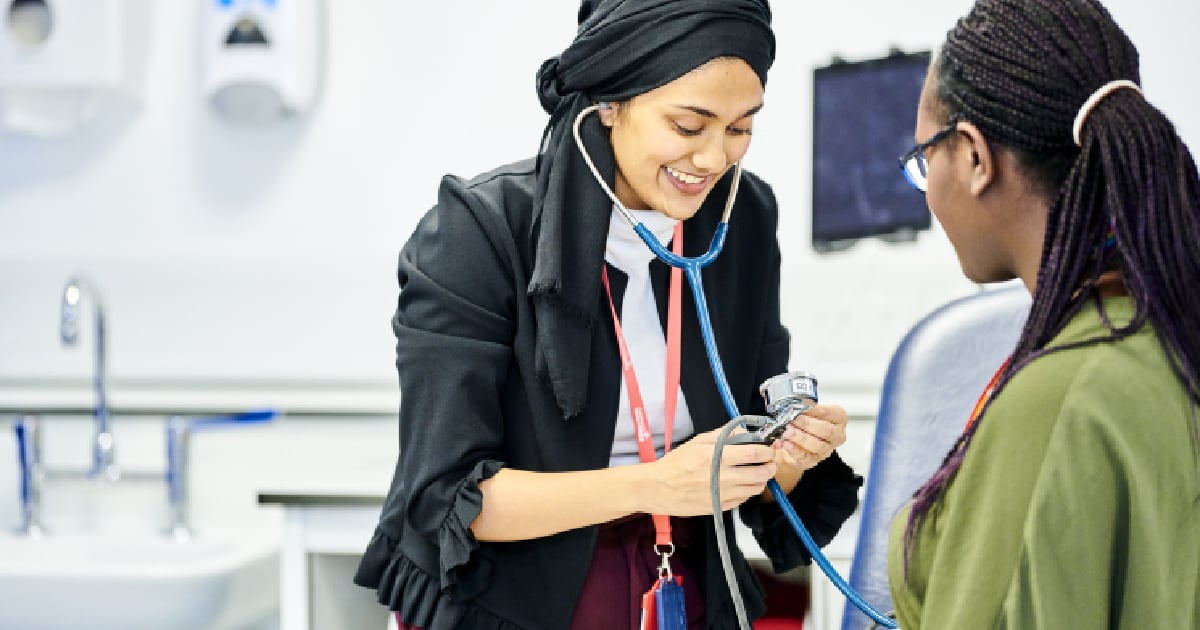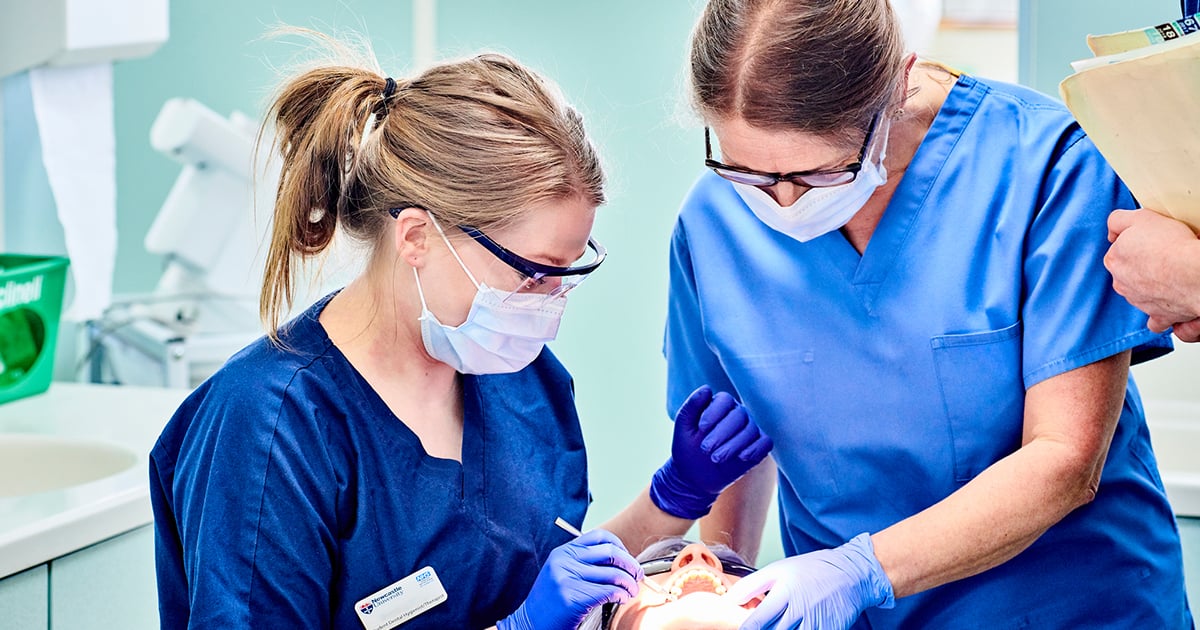This is how to get NHS healthcare as an international student
12 June 2025 | By: Judith Charlton | 2 min read
The UK has a publicly funded healthcare system called the National Health Service (NHS) which provides a wide range of services.
Read on to find out more about the care it offers, how to access healthcare services as an international student and whether these services are free.
Contents:
- What services does the NHS provide?
- How can international students use the NHS and is it free?
- Paying the Immigration Health Surcharge
- How to register with the NHS
- How to access NHS treatment
- Can I get a Covid-19 vaccine or booster?
- Health and Wellbeing support at Newcastle University
What services does the NHS provide?
The NHS provides a huge range of services, from primary healthcare at a doctor’s surgery (also known as General Practitioner or GP), to dental care, hospital and emergency treatment, family planning and sexual health services, mental health services and more.
NHS treatment is ‘free at the point of use’ for UK residents. This means UK residents can access the full range of services at no extra cost, except for some special NHS services such as eye care, dental treatment and prescriptions for medication.
How can international students use the NHS and is it free?
If you are applying for a Student visa and are coming to the UK for six months or longer, you must pay the Immigration Healthcare Surcharge (IHS) as part of your visa application.
Paying the IHS means you can get free healthcare in the same way as a UK resident (costs for the special NHS services mentioned above still apply).
When you access healthcare in the UK as an international student, you may have to prove your immigration status.
If your course is for less than six months and you are entering the UK on a Standard Visitor visa, you do not need to pay the IHS. However, you should take out private health insurance as you will need to pay for any NHS treatment you may receive, except in a medical emergency and this is limited.

Paying the Immigration Health Surcharge
The IHS costs £776 per year. You can start using the NHS when you have paid the surcharge and your visa application has been granted. Find out more, here.
How to register with the NHS
You should register with a GP as soon as you can after arriving in the UK. Your university will be able to provide details of how to register with a GP at a local surgery or health centre after you have paid the IHS. Some universities have their own health centres and you may be able to register with them.
At Newcastle, you can register with a GP online; it is a simple four-step process and you will need to supply some basic personal details. Registration is free.
How to access NHS treatment
For advice on common illnesses and the best way to treat them, you can visit your local pharmacy or chemist - if you don't know where that is, you can use the NHS search tool.
If you need to see a doctor, you should ring your GP surgery or health centre and make an appointment. If necessary, your doctor will refer you to a hospital and you will receive an appointment to see a consultant or specialist doctor.
GP surgeries and health centres are normally open for appointments during the day and early evening. Your appointment might be online, over the telephone, or face-to-face.
If you call out-of-hours when your local surgery is closed, an answering machine service will tell you where you can get help.
There are also 2 medical care telephone lines in the UK:
- For non-emergencies, call 111. Interpreters are available on this service
- For emergencies - when someone is seriously ill or injured and their life is at risk - call 999
Urgent care is also offered at Urgent Treatment Centres which are open at least 12 hours a day, every day. Some hospitals have Accident and Emergency (A&E) departments which are open 24 hours a day. You should only use A&E departments for emergency treatment for serious illness or injury.

Can I get a Covid-19 vaccine or booster?
You will be able to get the Covid-19 vaccination in the UK if you haven’t received it in your home country – but you must be registered with a GP.
The UK also has a Covid-19 vaccine booster programme.
Health and Wellbeing support at Newcastle University
Because life at university can sometimes be challenging, students at Newcastle University can also access a wide range of free and confidential health and wellbeing support.
Our Student Wellbeing team offers professional and advisory services, including:
- counselling
- mental health support
- disability and specialist learning
- international integration - advice and guidance about studying in the UK, finance and wellbeing
- financial support
- chaplaincy and pastoral care
More information is available here.
Find out more:
- Knowledge of English is important for your UK uni experience, Find out why
- Find out how much it costs to study in the UK
- Explore the academic year at a UK uni

We've been voted top in the UK for student life in the WhatUni Student Choice Awards 2025 - trusted recognition from real students.
